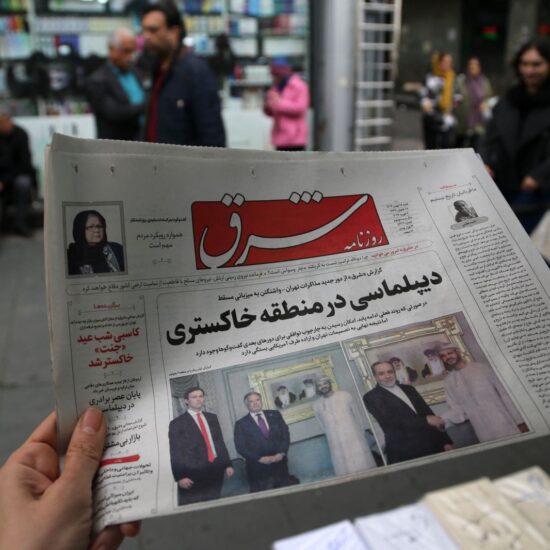
Factors, challenges and possible consequences of the Arab League’s removal of the terrorist label on the Party of God
The Arab League’s recent decision to cease labeling Hezbollah as a terrorist organization despite the attempt to rectify what they meant uncovers a significant development with profound implications for Middle Eastern politics. This move – however they tried to frame it – reflects changing regional dynamics, and promises important repercussions for Lebanon’s political landscape.
History of the terrorist label
Hezbollah, or the Party of God, was established in the early 1980s during the Lebanese Civil War, with the primary aim of resisting the Israeli occupation. Over the decades, it evolved into a powerful political and military force in Lebanon, supported financially and militarily by Iran. Despite its significant role in Lebanese politics, Hezbollah has been a controversial entity internationally.
In March 2016, the Arab League, following the Gulf Cooperation Council’s (GCC) earlier designation, officially labeled Hezbollah as a terrorist organization. This decision was driven by concerns over Hezbollah’s military interventions in Syria, Iraq, and Yemen, where it supported Iranian interests against Gulf Arab states’ allies. The designation reflected the broader regional power struggle between Sunni-majority Saudi Arabia and Shia-majority Iran.
Factors leading to the removal
The recent decision to remove Hezbollah from the Arab League’s terrorist list was announced by Assistant Secretary-General Hossam Zaki in a televised statement on June 29, 2024. This shift was influenced by several key factors:
Saudi-Iran rapprochement: The landmark Saudi-Iran agreement in March 2023, brokered by China, aimed to normalize relations between the two regional powers. This deal marked a significant de-escalation in the proxy conflicts that have plagued the region for decades.
Normalization with Syria: This decision is not new and follows the Arab League’s recent moves to normalize relations with the Syrian regime. Bashar al-Assad has been invited on multiple occasions to attend Arab summits, reflecting a broader trend of reintegration of previously isolated actors back into the Arab fold.
Changing regional dynamics: The ongoing war in Gaza and southern Lebanon has created a complex geopolitical landscape. The Arab League’s decision might be part of a broader strategy to reduce sectarian tensions and foster a more unified Arab response to Israeli actions in Gaza.
Internal Lebanese Politics: Lebanon’s political landscape is deeply divided, with Hezbollah being a major player. By removing the terrorist label, the Arab League acknowledges Hezbollah’s significant role and aims to stabilize Lebanese politics, which have been marked by economic crises and political paralysis.
Legitimizing Hezbollah’s role
Hezbollah’s influence in Lebanon is undeniable. It holds parliamentary seats, is represented by ministers in the government, operates a vast social service network, and has the largest non-state army in the world. The Arab League’s decision to cease labeling Hezbollah as a terrorist organization furtherly legitimizes its role and acknowledges its power on the ground. This move could pave the way from the League’s member’s perspective to facilitate more inclusive and stable political processes in Lebanon, a country which has been struggling with internal divisions and economic hardships for a very long time now.
Preparing for a post-war political framework
Given the current conflicts in the region, particularly the war on Gaza and in southern Lebanon, the Arab League’s decision might be preparing the ground for a post-war political deal. Such a deal would likely grant Hezbollah further formal political power within Lebanon’s political framework. By removing the terrorist label, the Arab League is facilitating a future where Hezbollah’s political and military influence is integrated more formally into the Lebanese state.
This shift might also reflect an understanding that lasting peace in Lebanon requires acknowledging all significant political entities, including Hezbollah. The organization’s military capabilities pose a threat not only to external adversaries but also to other Lebanese factions and the country’s development. This dual nature makes Hezbollah an indispensable player in any future political settlement.
Reflecting regional realignments
The decision aligns with broader regional realignments, particularly the Saudi-Iran rapprochement. Normalizing relations between these two regional powers suggests a shift from confrontation to engagement. The move to de-list Hezbollah indicates a willingness to reduce regional tensions and foster dialogue. This decision seems to be an attempt to create a more stable and cooperative Middle Eastern environment, which no doubt is crucial for addressing common challenges such as economic development and security.
Enhancing stability and reducing divisions
By legitimizing Hezbollah’s role, the Arab League aims to reduce internal divisions within Lebanon, potentially leading to a more stable government capable of addressing the country’s severe economic and political crises. However, this stability comes at the cost of granting Hezbollah more power. Increased legitimacy for Hezbollah could foster greater political coherence and potentially result in a more effective government. Yet, it also risks fostering authoritarianism and undermining Lebanon’s confessional democracy.
Potential challenges
This decision does not come without its challenges. Critics contend that legitimizing Hezbollah might embolden its military activities and increase its influence in Lebanese politics at the expense of other factions. Some argue that it is Hezbollah’s ultimate goal anyway – to reshape Lebanon’s political system, moving away from the power-sharing arrangement that has defined the nation’s governance. Additionally, countries within the EU and even the US, which continue to view Hezbollah as a terrorist organization at least officially, might oppose this move, leading to heightened diplomatic tensions. The international community’s response will be crucial in determining the broader implications of the Arab League’s decision. The coming months will reveal whether this move leads to lasting peace and stability in Lebanon and the broader Middle East, or if it further complicates the already complex regional dynamics. The outcomes will significantly impact the people in the region, determining whether they experience a resolution to their conflicts regardless of the price, or face continued uncertainty and strife.
Ramzi Abou Ismail is a political psychologist and researcher at the University of Kent.
The views in this story reflect those of the author alone and do not necessarily reflect the beliefs of NOW.








